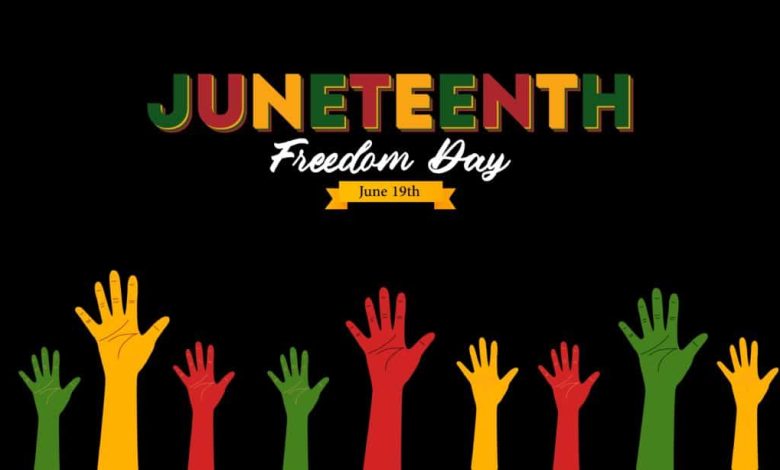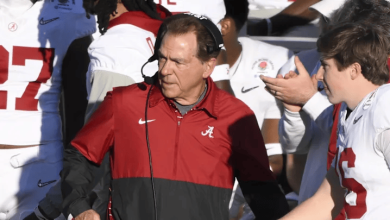Today we honor Juneteenth — a day of reflection, resilience and freedom. We celebrate the significance of this day in our nation’s history and the continued journey toward unity.

Today we gather, consciously and collectively, to honor Juneteenth—a day rooted in freedom’s overdue blessing, a testament to resilience in the face of profound injustice, and a vivid reminder of our nation’s aspirational journey towards unity. Every year on June 19th, we pause to reflect on the past, to celebrate emancipation’s promise, and to reaffirm our commitment to equality. In honoring Juneteenth, we honor all who endured enslavement, who resisted oppression, and who forged a path to liberation. We also recognize that this day calls upon each of us—not merely to commemorate history, but to continue striving for a more just and united society.
Juneteenth marks a pivotal moment in American history. Though President Lincoln issued the Emancipation Proclamation in 1863, the cruel institution of slavery endured for more than two years thereafter in parts of the South. On June 19, 1865, Union General Gordon Granger arrived in Galveston, Texas to read General Order No. 3, which declared that “all slaves are free”—a proclamation that finally reached the furthest corners of the Confederacy. On that day, more than 250,000 African Americans in Texas learned that they had been legally freed, igniting a wave of jubilation and relief that rippled across generations. The struggle was not over, and it wouldn’t be soon, but June 19th became the day freedom was realized for countless individuals and families.
Today, Juneteenth stands not only as a historical milestone but also as a symbol of the continuing journey toward freedom, justice, and equality. It represents remembrance of the bondage endured and salvation hard-won, but it also serves as an invitation: to reflect on societal inequities still unresolved, to educate future generations, and to recommit ourselves to the principles of liberty that underpin our democracy.
Reflection lies at the core of Juneteenth. On this day, we reflect on the souls who were held in human captivity, who labored without consent, who were denied the basic dignity afforded to every person. We reflect on mothers separated from children, families shattered, and communities crushed by systemic violence. We remember individuals like Harriet Tubman, Frederick Douglass, Sojourner Truth, and many others—brave souls who resisted bondage, who led revolts, escapes, and movements for emancipation. Their courage shines as a beacon and demands that we honor not only their heroism but their sacrifices as well.
Resilience is equally emblematic of Juneteenth’s spirit. Despite the horrors of slavery and the ongoing oppression that followed, Black communities persevered. They established churches, schools, businesses, and fraternities; they nurtured their cultures, traditions, and arts; they built families and legacies. Communities that once were enslaved organized celebrations with church services, barbecues, music, and prayer—Juneteenth gatherings that served as vital affirmations of human worth and freedom. In those festivals, faith, food, fellowship, and freedom intertwined, transforming a day of liberation into an enduring cultural tradition. Over the decades, those celebrations spread beyond Texas, carried by migration and the spread of Black communities across America, becoming integral to the broader national tapestry.
Today’s observances continue that legacy of resilience. In observance of Juneteenth, we gather in town squares, parks, and virtual spaces; we read from spirituals, speeches, and poems; we showcase art, film, and music that recount stories of resistance. Educational experiences—lectures, workshops, museum exhibits—delve into lesser-known facets of enslavement and emancipation. Families come together to share meals, testimony, laughter, and gravitas, acknowledging the personal and collective histories that have shaped them. The resilience we celebrate is not only rooted in the past—it lives in the heartbeats of present-day communities, in the work to dismantle systemic racism, in the commitment to educate the next generations.
Freedom is what Juneteenth honors—both the literal freedom from enslavement and the broader, ongoing quest for human dignity and rights. Emancipation was a seismic shift, but freedom is more than a legal status; it requires opportunity, equity, and justice. On this day, we recommit to ensuring freedom reaches full expression for all people—freedom from poverty, discrimination, violence, and disenfranchisement. This evolves into action: strengthening voting rights, improving education access, reforming criminal justice, closing economic racial disparities, and combating biases in healthcare and housing. By celebrating Juneteenth, we call attention to the promise yet unfulfilled and commit ourselves to advancing change.
Unity intertwines with reflection, resilience, and freedom. Juneteenth unites individuals across diverse races, cultures, and backgrounds in shared observance. It invites allies to stand with Black communities, to learn the history of systemic oppression, and to contribute to pathways of healing. In towns large and small—from Galveston to Chicago to Los Angeles—municipalities mark Juneteenth as a formal holiday. Schools include lessons, civic groups host panel discussions, and workplaces offer opportunities for service, dialogue, and introspection. We honor both the uniqueness of Black history and its centrality to America’s story. In doing so, we strengthen national unity, acknowledging that liberty’s full realization depends on collective effort and empathy.
Juneteenth also contributes to the broader national narrative. Once largely confined to communities in Texas, it now holds federal recognition as a National Independence Day with the passage of legislation in June 2021. That recognition is more than ceremonial—it is a declaration of inclusion, a statement that the story of freedom’s delayed arrival is part of the American story. With museums, monuments, and Juneteenth commemorations established across the country, the day reaches new audiences and ages. Yet we understand that federal recognition is not an endpoint—it is a milestone. Our work continues in ensuring this history is taught fully and honestly, that its lessons lead to policy reform and community empowerment, and that remembrance strengthens the moral foundation of our nation.
In reflecting upon Juneteenth, we also confront the fact that true freedom remains aspirational for many. The remnants of slavery—segregation, redlining, mass incarceration, educational inequity—persist in different forms. Black Americans still face disproportionate police violence, healthcare disparities, wealth gaps, and barriers to opportunity. Recognizing Juneteenth means acknowledging that the journey toward freedom extends beyond a single moment—it unfolds in everyday efforts to dismantle inequality. It demands systemic transformation and individual accountability.
So how do we honor Juneteenth in meaningful ways? Firstly, by listening—understanding personal narratives of enslavement’s legacy. Spoken accounts, family stories, literature, and art preserve history and kind human empathy. Next, by educating both ourselves and others—incorporating Black history into school curricula, hosting discussions, promoting scholarly research, and sharing resources. Thirdly, by participating actively—supporting Black-owned businesses, voting for leaders committed to racial equity, donating to causes that tackle systemic injustice, and volunteering in communities affected by inequality. Fourth, by shaping institutions—helping workplaces adopt inclusive policies, schools ensure equitable practices, and governments repeal discriminatory laws. Fifth, by celebrating—the joy, creativity, ingenuity, and enduring spirit of Black communities. Music, art, dance, cuisine—these express culture not just in abstract terms but as vibrant manifestations of freedom and identity.
In honoring today’s Juneteenth, we also enact unity across differences. We step beyond passive recognition and into collective responsibility. Allies of all races affirm that Black freedom is American freedom; that when any community suffers, it is our collective wound. Through dialogue, cooperation, and shared goals, unity becomes a reality—one rooted in mutual respect and solidarity. This unity is not uniformity; it is a recognition that justice lifts all people and that our shared future depends on each of us.
Concretely, many institutions use Juneteenth as a day of service—repairing homes, planting trees, providing health screenings, tutoring students. Others hold forums on race and reconciliation, create scholarships, or launch mentorship programs. In communities, families gather for ceremonial readings, cookouts, festivals, storytelling, and step dance. Churches hold worship services focusing on deliverance and equality. Virtual spaces host screenings of documentaries like 13th, I Am Not Your Negro, or The Black Church, followed by facilitated discussions that explore systemic issues. Schools invite guest speakers to speak of their lived experiences or Black scholars to outline historical contexts and contemporary challenges.
The arts, too, play a vital role. Music—from spirituals to gospel to hip-hop—traces the arc of Black resilience and liberation. Visual arts and photography exhibitions display Black histories and triumphs. Poetry readings give voice to still-unheard narratives. Dance and theater capture emotion, community, and protest. Each artistic expression serves as reflection, celebration, or call to action.
And then there are the meals—barbecues, red soda, fried chicken, corn on the cob, peach cobbler. Food is history on a plate; it connects families with heritage and binds communities in fellowship. In many Black families, Juneteenth dishes are recipes passed down through generations—embodied memories of resilience and survival.
Yet we also remember that Juneteenth should not be a one-day observance; it should be a catalyst for year-round transformation. A holiday without holistic change risks becoming performative plate-spinning. To truly honor Juneteenth, we must sustain momentum: continue educating, continue addressing inequities, continue legislating justice, continue elevating Black voices, continue empowering Black communities, and continue living the principles that emancipation stands for.
The work is long, the journey ongoing. But every small act—from teaching history in schools to advocating for fair housing, from supporting mental health access to reforming policing—moves us closer to freedom’s promise. Our collective efforts today honor those who endured so that future generations might live more freely and fully. We stand on their shoulders as we strive to build a society where liberty and justice truly belong to all.
On this Juneteenth, we reflect—remembering the pain, sacrifice, perseverance, and ultimate victory of liberation. We celebrate—honoring culture, community, achievement, and hope. We recommit—to justice, equity, and unity. We recognize that freedom is not static; it is a living promise, renewed through action and awareness. We pledge to bear witness, to speak out, to share—and to do our part, however big or small, to address the racial inequities that persist.
So let us celebrate Juneteenth not simply as a date on the calendar, but as a living call to conscience. Let it inform our seeking of truth. Let it shape how we educate our children. Let it guide how we govern. Let it inspire how we treat each other. In this hour, as we unite in reflection, resilience and freedom, we reaffirm our belief that collective action can build a more inclusive, equitable and united nation—faithful to the foundational ideal that all people are created equal.
On this Juneteenth, we honor the past and recommit to the future. We acknowledge the struggle, celebrate the triumph, and embrace the work yet to come. Today—and every day—we rise together, mindful of wrongs undone, determined to move forward, and hopeful that through unity, reflection, resilience, and freedom, our nation’s promise may one day be fully realized.









